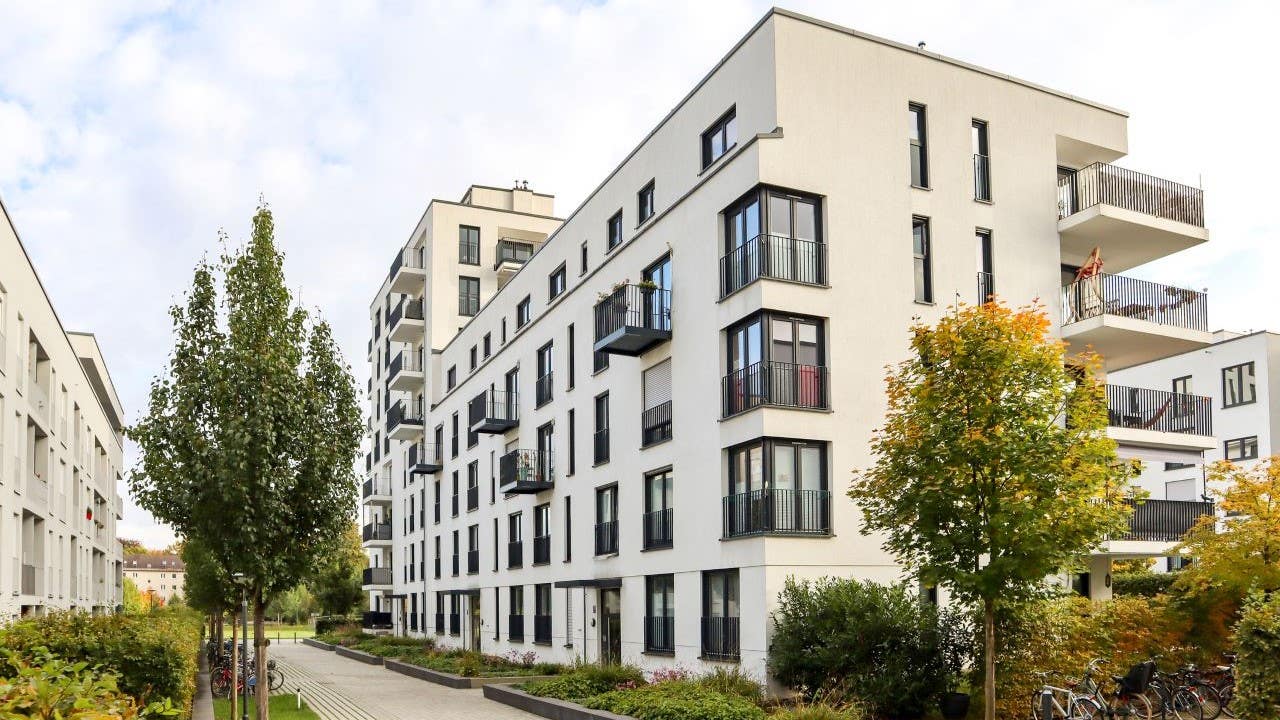Best REIT ETFs: Top real estate funds for investors

Real estate investment trusts, or REITs, allow investors to earn a portion of the profits of real estate investing without buying, managing or financing a physical property. REITs are popular among investors for their high dividends and their ability to diversify a portfolio, since they have lower correlations to the performance of stocks and bonds.
REIT investors carefully consider dividend yields, since dividends are a key component of the REIT’s return. But the dividend is not the only factor in picking a REIT, and investing in individual REITs requires a lot of research to ensure that you’re making a smart choice.
For investors who don’t want to put in all that time but want attractive REIT returns, a REIT exchange-traded fund (ETF) can offer a solution. With a REIT ETF, you can get exposure to the sector along with diversification, reducing the risk of any single REIT hurting your performance.
Below are some of the most popular REIT ETFs on the market.
Best REIT ETFs for 2025: List of the top real estate funds
Before investing in a REIT ETF, consider reviewing the fund’s prospectus to understand its investment strategy and its holdings.
(Return data is from Morningstar as of July 1, 2025. Yield is from Yahoo Finance.)
Vanguard Real Estate ETF (VNQ)
The Vanguard Real Estate ETF is arguably the most popular REIT ETF. The fund tracks an index of companies involved in the ownership and operation of real estate properties across the United States.
- 5-year return (annualized): 6.5 percent
- Dividend yield: 4.1 percent
- Expense ratio: 0.13 percent
iShares U.S. Real Estate ETF (IYR)
This fund is one of the oldest REIT ETFs in existence. Similar to the Vanguard fund above, this fund tracks an index of U.S. companies directly or indirectly involved in the real estate space.
- 5-year return (annualized): 6.5 percent
- Dividend yield: 2.6 percent
- Expense ratio: 0.39 percent
Real Estate Select Sector SPDR Fund (XLRE)
This ETF represents one of the core sectors that make up the S&P 500 index: real estate. The fund invests in large-cap real-estate companies with operations in the United States.
- 5-year return (annualized): 7.1 percent
- Dividend yield: 3.3 percent
- Expense ratio: 0.08 percent
iShares Global REIT ETF (REET)
This fund tracks a global index of real-estate companies operating in emerging and developed markets, including the United States.
- 5-year return (annualized): 6.6 percent
- Dividend yield: 3.5 percent
- Expense ratio: 0.14 percent
JPMorgan BetaBuilders MSCI U.S. REIT ETF (BBRE)
This ETF tracks an index of small-, mid- and large-cap companies, mainly in commercial and specialized real estate across the United States.
- 5-year return (annualized): 8.4 percent
- Dividend yield: 3.2 percent
- Expense ratio: 0.11 percent
What are REITs?
REITs invest in a range of real estate properties such as residential apartments, office buildings, hospitals, data centers, hotels, retail stores and so on. Some REITs specialize in specific market areas such as mortgage financing, while others have diversified investments across the real estate market. The risk profile of the REIT depends on the assets it holds.
To qualify as a REIT, a company must follow certain requirements. One of these provisions is that the company must distribute to shareholders a minimum of 90 percent of its taxable income in dividends in order to avoid corporate tax. So this rule makes REITs one of the most reliable industries for dividend-paying stocks.
Most REITs fall into three categories: equity, mortgage and hybrid. An equity REIT owns the actual real estate or land directly, while a mortgage REIT owns mortgages on real estate, perhaps through a mortgage-backed security. A hybrid REIT owns a combination of these two types.
Benefits and drawbacks of investing in REIT ETFs
Pros of REIT ETFs
- Attractive total returns. The average annual return of equity REITs over the past 20 years through September 2024 was 8.2 percent, according to industry organization Nareit, behind the Russell 1000 large-cap index’s annual return of 8.5 percent.
- Attractive passive income. REIT ETFs provide a reliable stream of passive income for dividend investors without the hassle of owning or managing a property.
- Highly liquid. Publicly traded REIT ETFs are highly liquid, so you can get back your principal any time the market is open — something that’s not easily achieved through physical real estate.
- Lower correlation to other assets. REITs can serve as a diversification tool in your portfolio because they are less correlated to other asset classes like stocks.
Cons of REIT ETFs
- Volatility. Like other equity-type investments, REIT ETFs can be volatile and susceptible to quick losses, a characteristic that is less noticeable in physical real estate.
- Beholden to capital markets. Since REITs must return 90 percent of their taxable income to investors, they have fewer funds available to act on investment opportunities. They need to regularly access debt and equity markets to expand, and if those markets charge high rates, the sector may be unable to grow.
- Dividends are taxed as ordinary income. Dividends from REITs are usually taxed as ordinary income, meaning they can be taxed at much higher rates than qualified dividends.
How to invest in REIT ETFs
A solid dividend strategy can be a key component of every investor’s portfolio. And when dividends are reinvested, the returns can be even higher.
When choosing REIT ETFs, here are four steps to consider:
1. Determine your financial goals
The type of investments you choose depends on what you are trying to achieve. For example, someone about to retire should have a more conservative approach to investing. So always let your financial objectives drive your decision-making.
2. Research REIT funds
When selecting REIT ETFs, pay attention to factors such as dividend history, dividend yield, the fund’s performance, expense ratios, top holdings and assets under management. Investors can find this information in a fund’s prospectus or website.
3. Outline your asset mix
Before investing, do an inventory of what you own and how you want to allocate your assets. Remember, the key is to remain diversified. A REIT fund can comprise an important portion of your overall portfolio.
4. Review your investing strategy regularly
By periodically reviewing your investments, you can take charge of your finances and make any adjustments needed. Leverage any free resources from your broker, such as meeting with a financial planner, and always ask questions. Ultimately, there’s no such thing as a hands-off investment.
Like any other investment, REIT ETFs are susceptible to losses. However, the magnitude of potential losses is tied to the level of risk contained in the portfolio. So a fund that invests heavily in potentially riskier assets such as highly-leveraged real estate companies will have a very different risk profile than a fund that invests in established, tried-and-true names.
Where can you buy a REIT ETF?
You can buy REIT ETFs at any of the best brokers for ETF investing, such as Fidelity Investments or Vanguard.
— Bankrate’s Brian Baker and James Royal contributed to an update of this story.
Editorial Disclaimer: All investors are advised to conduct their own independent research into investment strategies before making an investment decision. In addition, investors are advised that past investment product performance is no guarantee of future price appreciation.
Why we ask for feedback Your feedback helps us improve our content and services. It takes less than a minute to complete.
Your responses are anonymous and will only be used for improving our website.






